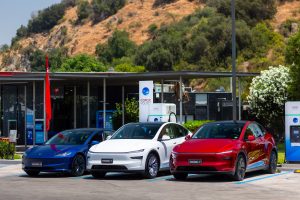
Electromobility in Freight Transport: Enel X, Autel, Keysight Technologies, and CANACAR Debate Challenges and Opportunities
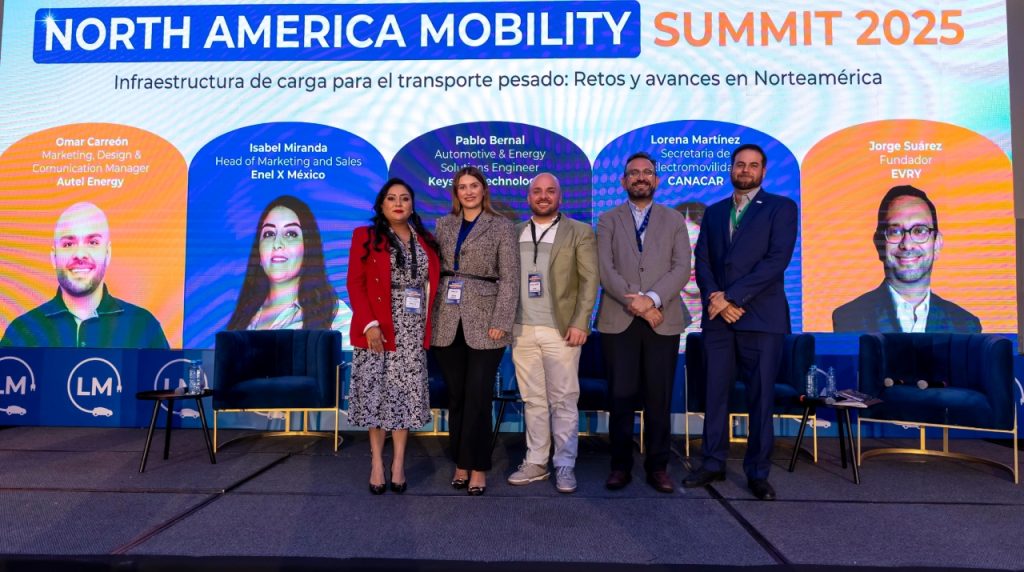
Monterrey, Mexico hosted the North America Mobility Summit 2025, welcoming leaders from the electromobility sector to discuss the challenges and opportunities facing the freight transport industry in its transition to more sustainable technologies.
In a meeting with over 400 attendees, more than 70 speakers, and 20 partners, Isabel Miranda, Head of Sales and Marketing at Enel X Mexico; Lorena Martínez, Secretary of Electromobility at Canacar; Omar Carreón, Head of Marketing and Sales at Autel Energy; and Pablo Bernal, Energy and Automotive Solutions Leader at Keysight Technologies, discussed the main points of interest in the sector, moderated by Jorge Suárez, founder of EVRY.
Solutions from the Energy Sector
From the perspective of Enel X, Isabel Miranda highlighted the importance of designing efficient charging hubs tailored to the energy demand of each region.
“A key challenge is the need for reinforcements in the electrical grid to support the growing demand for fast charging,” she said.
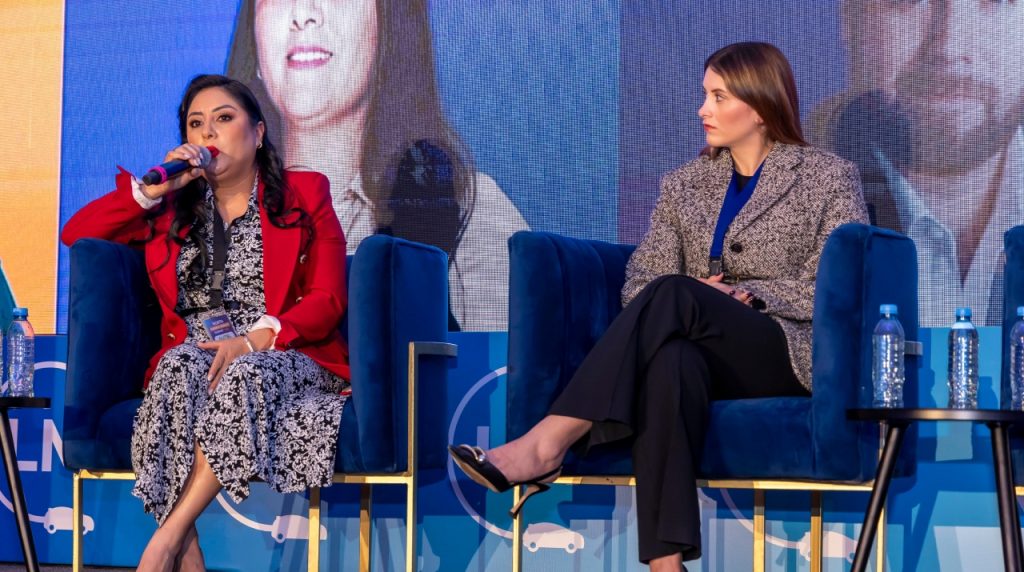
She also mentioned that electrification involves selecting electric vehicles, but also, “the creation of strategic alliances between operators, infrastructure providers, and energy companies.”
Furthermore, renewable energy is crucial in the company’s development: “We have solar panels that power part of our operation. The demand we have contracted is also sustainably electrified. There, we close the sustainability loop,” she affirmed.
Innovation and Global Experience
Omar Carreón from Autel Energy offered a global vision on the evolution of electromobility, emphasizing that fast charging technologies are constantly being developed to improve operational efficiency for fleets.
“Autel offers scalable charging solutions that allow companies to expand their infrastructure as their needs grow,” he stated.
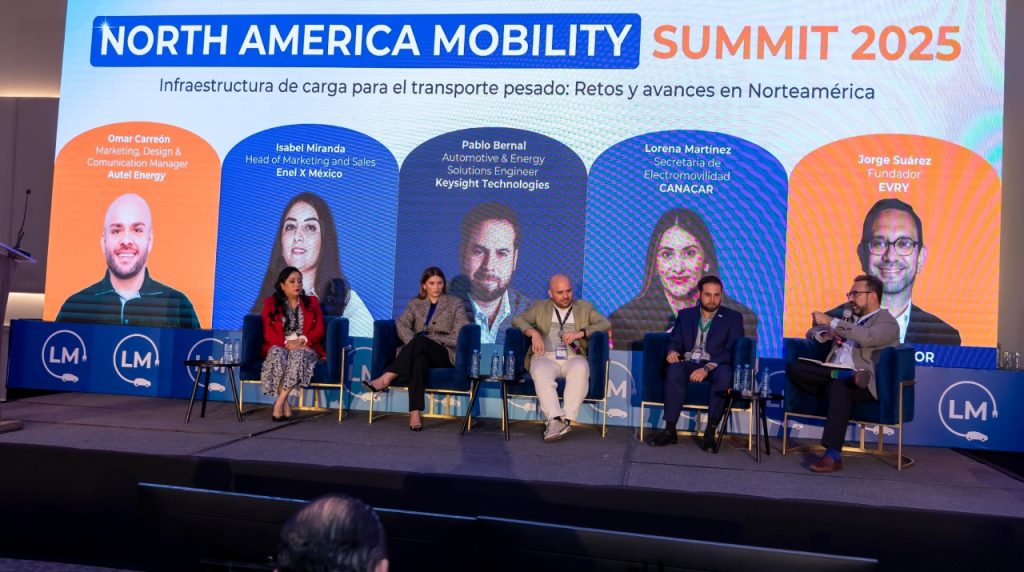
He also highlighted that interoperability between charging systems and smart energy management are essential elements for the success of the transition.
“In terms of fleets and transport, we offer ultra-fast charging options ranging from 360 to 640 kW, enabling fast and dynamic vehicle flow,” he commented. Additionally, they are working on opening the software to allow interoperability and systems that are smart to avoid overloading the grid.
Challenges of Electromobility in Freight Transport
Lorena Martínez highlighted three major challenges facing the adoption of electromobility in freight transport. First, “the high cost of electric tractor-trailers compared to internal combustion vehicles, with differences that can reach up to 50%,” she assured.
Second, the lack of charging infrastructure, which limits the operability of electric fleets and creates an additional financial burden for transporters.
Finally, “safety on road corridors is a key concern, as charging stations must be located in strategic points to minimize risks for operators and cargo,” she concluded.
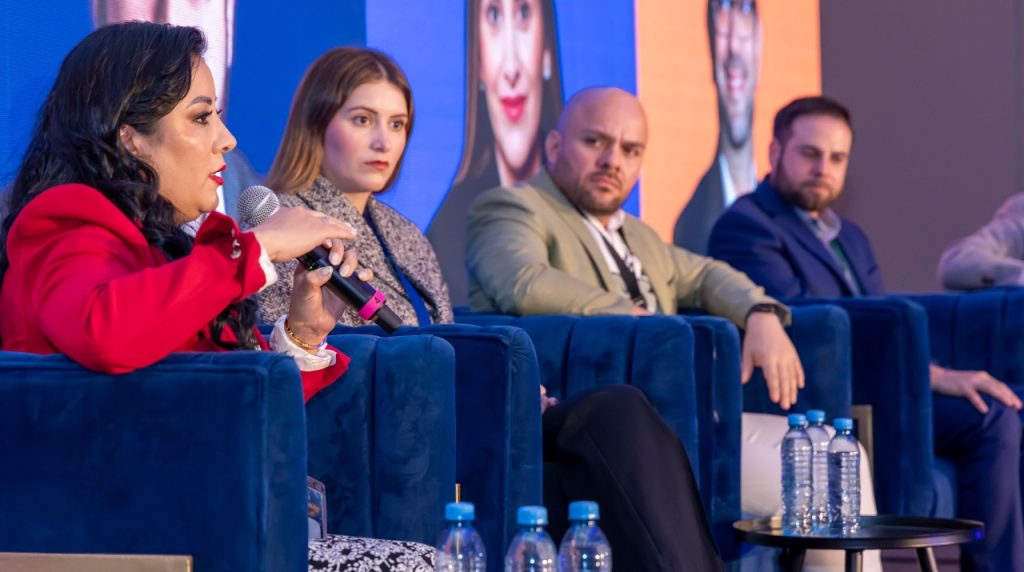
Regulation and Standardization
Pablo Bernal, from Keysight Technologies, addressed the importance of standards in electromobility. He highlighted the role of ISO 15118-2 in the development of Smart Charging and mentioned that regulation in Mexico is still in the process of consolidation.
“Agreement 108 from the CRE has been a first step in defining a regulatory framework for electric vehicle charging, but much remains to be done to ensure the compatibility and efficiency of charging systems in the country,” he assured.
Ecosystem Under Construction
The panel made it clear that the electrification of freight transport is a complex process that requires collaboration between various stakeholders.
Strategic planning, investment in infrastructure, safety in charging corridors, and the adoption of solid standards will be key to accelerating the transition.
Finally, as Mexico advances on this path, global experience and local initiatives will be important in building an efficient and sustainable electromobility ecosystem.
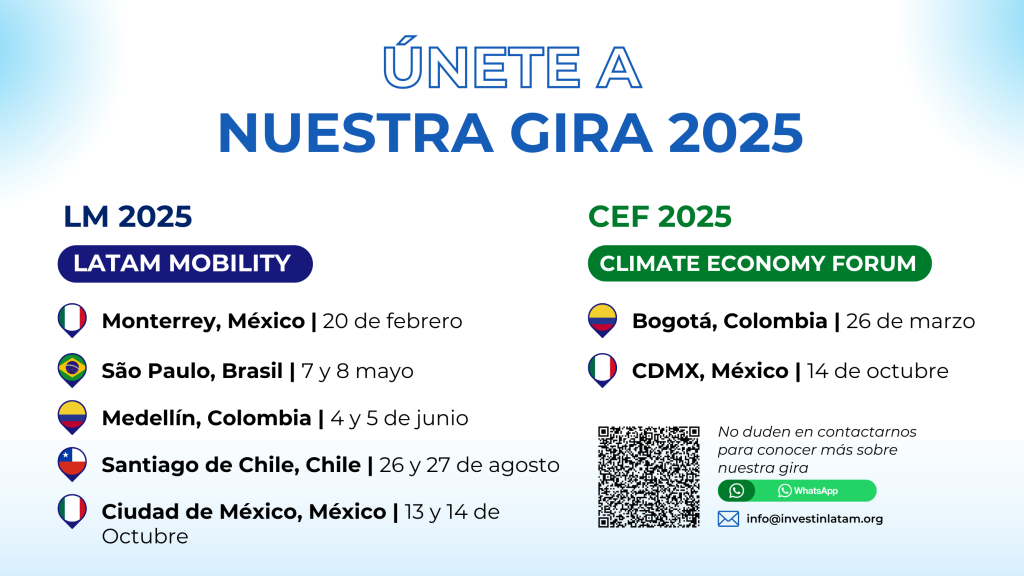
Next Destination: Brazil
Brazil has the largest vehicle production chain in the southern part of the continent and is also the largest and most important market in Latin America. For this reason, Latam Mobility strengthens its role as a key player in generating synergy, networking, and alliances between the public and private sectors in the South American giant.
The “Latam Mobility: Brazil 2025” event in São Paulo will bring together the most important companies and leaders connected to energy, transport, fuels, and mobility to showcase the industry’s progress and outlook in Mexico, the United States, and the region.
For more information on how to participate and positioning options, contact us at: info@investinlatam.org.
Get in touch with us via WhatsApp or take advantage of the pre-sale tickets for São Paulo, here.





